Textile fiber: Textile fibers include natural and artificial fibers that can be interlaced or looped to make yarn or fabric for clothing and other domestic and industrial uses. In other words, textile fiber is the raw material that is used to produce yarn for fabric production. Textile fiber, in its simplest form, is a filament or fine strand of sufficient length, pliability, fineness, flexibility, and strength to be spun into yarn and woven into cloth. In this article, I will brief history of man made fiber. Generally, textile fibers fall into two categories. They are:
- Natural Fiber.
- Man-Made Fiber
Natural Fiber: Fibers that are derived from animal, vegetable, or mineral sources and can be converted into nonwoven fabrics such as felt or paper or, after spinning into yarn, into woven cloth are called natural fibers. Natural fibres are agglomerations of cells with a diameter very small compared to their length. In spite of nature’s abundance of fibrous materials, especially cellulosic types such as cotton, wood, grains, and straw, only a few are suitable for textiles or other industries.
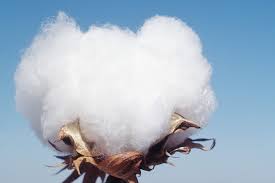
Man-Made Fiber: The fiber which is derived different reaction of chemical is called man made fiber. The manufacturing process alters the composition, structure, and properties of the material. There is a huge number of consumer and industrial products made from man-made fibres, including shirts, scarves, and hosiery, as well as home furnishings such as upholstery and carpets,
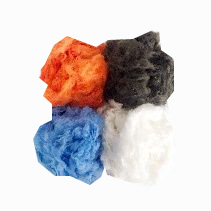
Historical Development Man Made Fiber:
Fiber history can be divided into two types. For example: There is a history of natural fiber and a history for man-made fiber. Natural fibers were used for the first time in 8000 B.C. in Egypt. Many years ago, the man tried to use natural fiber in the Indian subcontinent. Especially in this continent, men tried to use silk first.
A study of the historical development of man-made fibers is very interesting and challenging. The idea of making synthetic fibers came from a desire to make a silk substitute.
In 1664, the famous English scientist Robert Hooke published a book called – “Micrographia.” Hooke discussed, among many other things, the possibility of making an artificial fiber that mimicked silkworms. Simply by forcing a liquid through a tiny hole in its head, this insect produced the finest textile fiber known to mankind
The production of man-made fibers such as rayon, the first of them, had been prophesized by Robert Hooke as long ago as 1664. He believed it was possible to make an artificial glutinous composition or other substances, which were used to draw the silk-worn wire.
In 1710, Rene A de-Reaumer, a French scientist, proposed that silk filament could be produced from gum and resins. It wasn’t until 1770 that Dubert took this idea to the next level and succeeded in making silk filament from silky gum extracted from dead silk dresses.
In 1842, an English weaver named Louis Schwabe invented the machine for creating artificial filaments by forcing liquid through fine holes.
Swiss chemist Gorges Audemars discovered the process of making cellulose mitrate in 1855, which led to the nitrocellulose manufacturing process.
In 1884, Count Hilaire de Charcionnet produced the first man made textile fiber from Nitrocellulose solution, known as “Rayon.” He became the “Father of Rayon.”
As early as 1890, L.H. Despaisses of France developed the cuprammonium process to make rayon, which had the following properties.
During the 1890s, Germany manufactured the first cuprammonium rayon fiber. Cross and Bevan discovered another way of converting cellulosic material.
As early as 1892, they discovered the xanthation process, a method of dissolving cellulose in sodium hydroxide and carbon disulphide to recover it by acidification.
In 1903, secondary cellulose acetate was partially hydrolyzed by cellulose triacetate.
As of 1914, commercial cellulose fiber was manufactured. In Switzerland, Henry Drefus invented cellulose easter.
According to these research activities, fibers like natural fibers and rayons are composed of linear organic macromolecules arranged along three main dimensions. Synthetic fibers have developed from this knowledge. The major inventive step in developing synthetic fibers occurred in the United States and Germany between 1928 and 1936.
In 1934, the first synthetic fiber was developed in Germany from the co-polymers Vinyl halide and Vinyl ester. Many claim these were the first synthetic textile fibers but were of little commercial significance. The fiber was known as “Vinyon” and “Pe-Ce.” Dr. Wallace and H. Carothers, who worked with polyesters and polyamides, laid the groundwork for synthetic fibers.
It was in 1935 that he and his six workers developed fiber-forming polymers from polyesters and polyamides and discovered poly hexamethylene adipamide and cold drawing as a result. A while later, P.Shlack from Germany began researching condensation polymers. In 1937-38, he discovered nylon 6.6, or poly caprolactam.
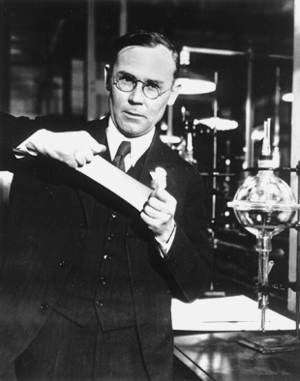
As well as polyethylene terephthalate, polyacrylonitrile was developed by Du-Pont in 1945. Polyethylene terephthalate was first made in England by J.R. Whinfield and J.T. Dickson in 1941.
In 1954, Ziegler and Natta patented a process to manufacture polypropylene. Polyvinyl alcohol was produced in 1957, followed by the production of polyurethane elastomeric fiber in 1958.
In 1959, E.I. DuPont de Nemours and Company began commercial production of spandex fiber in the United States. Spandex fiber is an elastomeric man-made fiber used as a filament.
In 1961, Hercules Incorporated manufactured the first U.S. Olefin fiber. The fiber won the Nobel Prize for Physics in 1966.
In 1989, E.I. Due Pont De Nemours and Company launched the first commercial production of microfiber in the U.S. Microfibers are not really new fibers, but instead micro-sized ones. Today, microfibers are manufactured in a variety of synthetic materials, including nylon, acrylic, and others.
The first commercial production of lyocell occurred in 1993 when Courtaulds Fibers introduced the Tencea trade name. Lyocell is produced from trees grown specifically for this purpose. It is environmentally friendly and produced by using a solvent spinning technique in which the dissolving agent is recycled, reducing environmental waste.
As early as 1997, Teijin Limited produced the first commercial elastoester in Japan. Like spandex, yet chemically different. They were used in swimwear, cycling, and skiing garments.
In 2001, Cargill Dow LLC produced the first commercial amount of PLA. This man-made fiber is made from renewable resources and is biodegradable. It has excellent color characteristics, low absorption, good wicking, and U.V. resistance.
Textile fibers are still being developed today. Textile fibers i.e. man made fiber have developed historically in these ways.

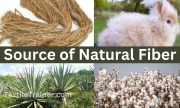
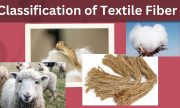


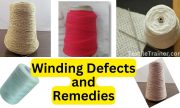

Say, you got a nice post.Thanks Again.
Welcome
Thanks for sharing, this is a fantastic blog.Really looking forward to read more. Want more.
keep visit our site.
Thank you for your blog.Much thanks again. Want more.
ok, I will try…..
Hey, thanks for the blog post.Really thank you! Great.
keep visit our site.
A big thank you for your article post.Thanks Again. Really Cool.
thanks too.
Im grateful for the post.Thanks Again. Want more.
ok, we will try…
Very good article. Really Cool.
keep visit our site..
This is one awesome post. Really Great.
please support us.
Good data. Thank you!how to write contrast essay homework university essay writing service
keep visit our site….
This is one awesome blog. Great.
Great post. I was checking constantly this blog and I am impressed! Very helpful info specifically the last part 🙂 I care for such information much. I was seeking this particular info for a very long time. Thank you and good luck.
thanks too…
ตอนต้นผมว่าเว็บไซต์ไหนก็แบบเดียวกัน ด้วยเหตุว่าเข้าไปก็พบเกมเดิมๆถึงแม้เอาเข้าจริงๆมันไม่เหมือนกันขอรับ ยิ่งเว็บไซต์ไหนที่เวลาฝากถอนจึงควรผ่านข้าราชการอันนี้ผมรังเกียจสุดเลย เสียเวล่ำเวลา ส่วนตัวผมว่า UFABET ดีสุดเลยค่ะครับผม เค้าใช้ระบบอัตโนมัติ
These are really fantastic ideas in about blogging. You have touched some nice things here. Any way keep up wrinting.
Howdy! This blog post couldnít be written any better! Going through this article reminds me of my previous roommate! He always kept preaching about this. I will send this article to him. Pretty sure he will have a good read. Many thanks for sharing!
Hey, thanks for the blog.Thanks Again. Much obliged.
Really appreciate you sharing this article. Keep writing.
Im thankful for the blog post.Thanks Again. Fantastic.
A round of applause for your article.Thanks Again. Cool.
Very informative post.Much thanks again. Will read on…
Thank you ever so for you blog post.Really thank you! Much obliged.
keep visit our site…
I value the blog.Thanks Again. Will read on…
Really appreciate you sharing this blog post. Really Great.
Thanks for sharing your thoughts. I truly appreciate your efforts and I am waiting foryour further write ups thank you once again.
This is one awesome blog post.
Wow, great blog article.Much thanks again. Much obliged.
Looking forward to reading more. Great article post.Thanks Again. Want more.
keep visit our site.
Great, thanks for sharing this post. Want more.
ok…
I appreciate you sharing this blog article.Really thank you!
Really appreciate you sharing this post.Thanks Again. Will read on…
I appreciate you sharing this article.Thanks Again. Keep writing.
I loved your post.Really thank you! Really Great.
A big thank you for your post.Much thanks again. Want more.
Thanks a lot for the blog post. Awesome.
Great blog post.Really looking forward to read more. Keep writing.
I really liked your blog. Really Great.
Im obliged for the article post.Really looking forward to read more. Want more.
Great article.Really looking forward to read more. Really Cool.
I am so grateful for your article post.Really looking forward to read more. Much obliged.
Great, thanks for sharing this blog article.Really looking forward to read more.
Im grateful for the article.Thanks Again. Keep writing.
Very informative article.Really looking forward to read more. Awesome.
Thanks a lot for the blog.Much thanks again. Keep writing.
Thank you ever so for you article.Thanks Again. Really Great.
Wow, great blog post.Thanks Again. Will read on…
Looking forward to reading more. Great blog post.
Great, thanks for sharing this blog post.Much thanks again. Cool.
Appreciate you sharing, great article.Much thanks again. Really Cool.
Really appreciate you sharing this article.Really thank you! Will read on…
What’s up colleagues, nice post and good arguments commentedhere, I am truly enjoying by these.
I truly appreciate this article.Really thank you! Cool.
Thanks. Stay connected
Very informative blog post.Really looking forward to read more. Cool.
A big thank you for your blog.Much thanks again.
I think this is a real great blog.Really thank you! Want more.
This is one awesome blog article.Much thanks again. Much obliged.
Say, you got a nice post.Really thank you! Great.
Great, thanks for sharing this article. Fantastic.
I loved your article post. Want more.
I cannot thank you enough for the article. Cool.
Very good article.Really looking forward to read more. Fantastic.
Awesome blog.Really looking forward to read more. Will read on…
Very good post.Really looking forward to read more. Awesome.
Awesome blog.Much thanks again. Want more.
I really liked your blog post.Really looking forward to read more. Really Cool.
A big thank you for your article post. Really Great.
Looking forward to reading more. Great blog post.Thanks Again. Really Great.
Thanks a lot for the blog article. Awesome.
Hey, thanks for the article post.Really thank you! Cool.
I think this is a real great blog article.Much thanks again. Much obliged.
A big thank you for your blog article.Really thank you! Much obliged.
A round of applause for your article post.Thanks Again. Awesome.
Looking forward to reading more. Great blog.Much thanks again. Fantastic.
wow, awesome article.Thanks Again. Great.
A big thank you for your blog.Thanks Again. Great.
I loved your blog.Really looking forward to read more. Great.
Great, thanks for sharing this article.Thanks Again. Fantastic.
Awesome article post.Much thanks again. Really Cool.
I truly appreciate this blog post.Much thanks again. Fantastic.
Im thankful for the article. Cool.
Thank you for your article post. Really Cool.
Thanks for sharing, this is a fantastic blog post.Really looking forward to read more. Cool.
I am so grateful for your post.Thanks Again.
Thanks for the article.Really looking forward to read more. Really Cool.
I really liked your post.Really thank you! Cool.
Thanks so much for the blog.Really thank you! Want more.
Very neat article. Great.
Great blog. Really Great.
Thanks a lot for the post.Thanks Again. Great.
I really enjoy the article.Really looking forward to read more. Much obliged.
Thank you for your blog article.Really looking forward to read more. Awesome.
Thank you for your article post.Really looking forward to read more. Will read on…
wow, awesome blog. Much obliged.
I think this is a real great article.Much thanks again. Much obliged.
Very interesting points you have noted, thankyou for posting.
A big thank you for your post.Thanks Again. Really Cool.
Appreciate you sharing, great blog post.Really thank you! Cool.
I really liked your blog.Really looking forward to read more. Cool.
I think this is a real great blog article.Much thanks again. Really Great.
Thanks a lot for the blog. Much obliged.
Really informative blog post. Fantastic.
Awesome post.Really thank you! Want more.
I will right away grab your rss as I can not to find your e-mail subscription hyperlink or e-newsletter service.Do you’ve any? Please allow me recognize in order that I could subscribe.Thanks.
A big thank you for your post. Cool.
I value the post.Much thanks again. Fantastic.
Fantastic blog post.Really thank you!
Appreciate you sharing, great blog article.Much thanks again. Fantastic.
Really enjoyed this post.
Really informative blog article.Thanks Again.
Thank you ever so for you article post.Really looking forward to read more. Cool.
Thank you ever so for you blog post. Really Great.
A big thank you for your blog post.Really thank you! Really Cool.
I blog quite often and I seriously thank you for your content. This great article has really peaked my interest. I will take a note of your blog and keep checking for new information about once a week. I subscribed to your RSS feed as well.
A big thank you for your post. Keep writing.
I always emailed this blog post page to all my contacts, for the reason that if like to
read it then my friends will too.
I truly appreciate this article post.Really thank you! Really Cool.
Thanks again for the article post.Thanks Again.Loading…
Perfectly indited subject material, thanks for information .
Very good blog post.Much thanks again. Want more.
Thanks so much for the blog article.
Thanks for the article.Really looking forward to read more. Cool.
Very informative blog post.Really looking forward to read more. Fantastic.
Very neat blog article.Much thanks again. Awesome.
Great blog article. Cool.
Thank you for your article post.Really looking forward to read more. Great.
Kerassentials are natural skin care products with ingredients such as vitamins and plants that help support good health and prevent the appearance of aging skin. They’re also 100% natural and safe to use. The manufacturer states that the product has no negative side effects and is safe to take on a daily basis.
Thank you ever so for you post.Really thank you! Cool.
Very informative blog post.Much thanks again. Really Cool.
Thanks so much for the blog.Thanks Again. Really Cool.
Im thankful for the post.Really thank you! Will read on…
Thank you for your article post.
Appreciate you sharing, great article.Thanks Again. Will read on…
Thank you ever so for you article post.Thanks Again.
Fantastic blog article.Much thanks again. Will read on…
Awesome article post.Really thank you! Much obliged.
Thanks for the blog post. Cool.
Very informative article.Really thank you! Really Great.
Thanks a lot for the blog post.Really thank you! Fantastic.
Thank you for your post.Thanks Again. Much obliged.